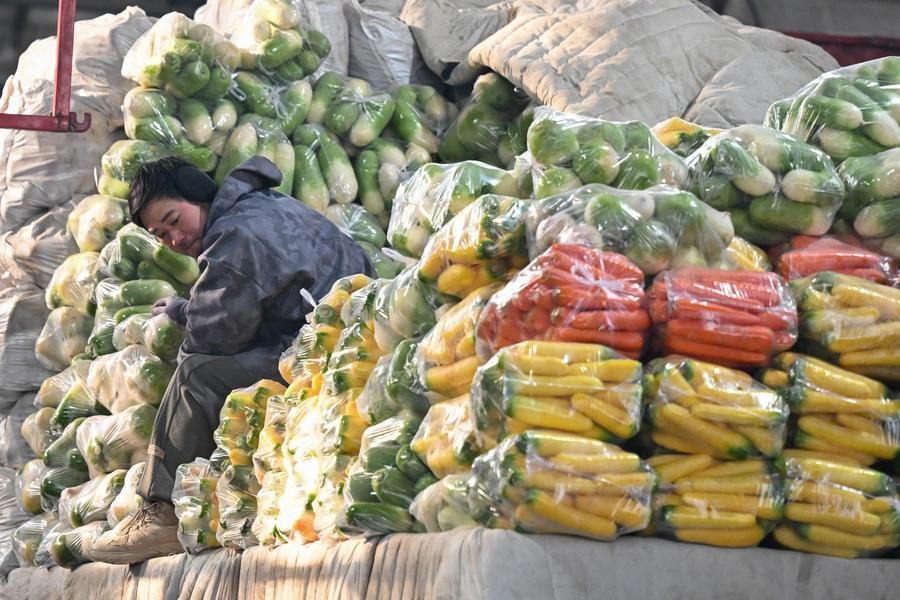Explainer: Chinese medical experts on key COVID-19 concerns through FAQs


BEIJING -- In response to questions of public concern regarding China's fight against COVID-19, Xinhua reporters have interviewed experts with the State Council inter-agency task force for COVID-19 response to provide answers.
Q1: Will XBB subvariants cause large-scale outbreaks?
In the last three months, imports of novel coronavirus subvariants BF.7, BQ.1 and XBB were detected in China, where the BQ.1 and XBB subvariants have not developed into dominant subvariants, said Xu Wenbo, director of the National Institute for Viral Disease Control and Prevention under the Chinese Center for Disease Control and Prevention (China CDC).
Currently, the BA.5.2 and BF.7 subvariants are the two dominant strains in China, according to the China CDC. Neutralizing antibodies in individuals infected with the two strains will remain at a relatively high level for about three months and are expected to provide people with effective cross-protection against other Omicron subvariants, including XBB.
The possibility of a large-scale epidemic caused by the Omicron XBB subvariant is low in the short term in China, noted the China CDC.
Responding to online reports of vomiting and diarrhea caused by XBB, Li Tongzeng, a chief doctor with the department of respiratory and infectious diseases at Beijing Youan Hospital, Capital Medical University, said symptoms of vomiting and diarrhea may occur in some people infected with the novel coronavirus and will usually ease in one to three days.
The XBB strain has not been found to be more likely to invade the cardiovascular and digestive systems, according to Li.
Q2: Is it necessary to get COVID vaccine jabs after being infected?
According to Wang Huaqing, chief expert for the immunization program of the China CDC, the immunity generated from infection is less potent than the immunity jointly generated from infection and vaccination, so it is advised to get vaccinated.
The interval between one's contraction of the novel coronavirus and vaccination against the virus -- shall be not less than six months -- Wang said.
The expert called on individuals who have met the conditions for COVID-19 vaccination to receive booster vaccine jabs in accordance with the procedures, in order to gain better protection.
Q3: How to properly monitor one's blood oxygen?
Wang Guiqiang, director of the infectious disease department of Peking University First Hospital, said the blood oxygen levels of high-risk groups, namely the elderly and people with underlying diseases, require extra attention.
Xu Kaifeng, deputy head of the department of respiratory and critical diseases of Peking Union Medical College Hospital, said patients with respiratory diseases should pay extra attention to whether their blood oxygen saturation had significantly fallen, as a saturation rate of under 90 percent might suggest serious lung damage, in which case the patients must seek treatment immediately.
A number of localities in China are currently offering finger-clip oximeters to the elderly and other groups of people who are more vulnerable to COVID-19, as well as guiding them to test their blood oxygen saturation at home.
A circular recently issued by the State Council joint prevention and control mechanism against COVID-19 asked local authorities to equip primary-level medical and elderly-care facilities with adequate devices including oxygen packs, oxygen cylinders and oxygenators, so that outpatients, patients at home and elderly people at elderly care facilities, could receive oxygen-related treatment in time.
Q4: Why would some patients retest positive for COVID-19 after recovering from the coronavirus?
Retesting positive for COVID-19 after recovering is different from being infected with the coronavirus for a second time, said Wang Guiqiang with Peking University First Hospital.
The repetition of positive test results is mostly caused by test methods and intermittent detoxification of the body, and whether one has really retested positive or not should be verified by nucleic acid tests, he said.
Most of those who retested positive for COVID-19 had no symptoms and only a few would have residual symptoms such as coughs, Wang added.
Q5: How to ensure the supply of medical resources in rural areas?
Chinese authorities recently released a work plan to step up COVID-19 response in rural areas, ordering localities to ensure the smooth operation of rural COVID-19 response systems, treatment of severe cases, and better protection for the elderly and children against the virus.
It asked local authorities to provide multi-level medical and healthcare services according to the conditions of patients, in order to protect the safety and health of rural residents to the greatest extent possible.
Nie Chunlei, head of the Department of Primary Health under the National Health Commission, said the State Council inter-agency task force for COVID-19 response had established a system for coordinating the supply of drugs and other key medical supplies on a daily basis.
Currently, priority is given to the supply of medicine in rural areas, in particular rural medical institutions, Nie said.
"Competent departments have rolled out policies to help relevant enterprises expand capacity, accelerate drug production, and better coordinate supply and demand," Nie said, adding that the use of Traditional Chinese Medicine, and the combination of Chinese and Western medicine, are encouraged to help community-based medical institutions better meet the needs of patients.
Q6: Will the passenger flow during the Spring Festival holiday travel rush lead to the large-scale spread of COVID-19?
"The virus transmission in 'small places' now is not as rapid as that in big cities, but the spread there lasts long," said Zhang Wenhong, head of the Center for Infectious Diseases with the Shanghai-based Huashan Hospital of Fudan University. He expected places with passenger inflows to see a surge of inbound infections.
Mao Dezhi, deputy head of the Department of Rural Cooperative Economy under the Ministry of Agriculture and Rural Affairs, urged people who are returning to the rural areas to take personal protection steps on the journey, to wear masks during their initial contact with the elderly and children, and to avoid crowds in the rural areas.
Moreover, Mao urged rural residents to actively participate in local COVID-19 response and help build a stronger community-based COVID-19 control network.
"If necessary, please provide timely help to your neighbors by sharing your spare drugs and medical supplies," Mao said.
- Ministry to optimize the structure and scale of university enrollment
- Why do China's cultural and creative products go viral?
- Aviation sci-fi park Nantianmen to open in 2027
- Chinese researchers make breakthrough in green cooling technology
- Former head of national forestry and grassland body under investigation
- A new lease of life: Providing dialysis access in rural China





































